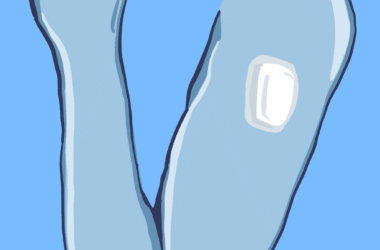CHEM 110. MATH 140. BIOL 111. PHYS 101. Every McGill science student will recognize these course codes in an instant; they are none other than the freshman science program course requirements. Whether it is your very first semester at McGill, or you are getting those last few credits of your degree, it is almost guaranteed that you will take some combination of these courses as a McGill science student. Therefore, we wanted to lend you a helping hand with some advice for managing this courseload like a champ.
Class: To attend or not to attend?
Despite what you may have heard, your success does not depend on perfect attendance of every lecture and tutorial of your degree. It is inevitable that you will miss class here and there, whether it is a studious skip to get other work done, or simply the result of a scheduling mishap. Are we prescribing a life of flaking on tutorials and NYT crosswords during lectures? Of course not. Just know that the occasional absence is not likely to be the demise of your academic or professional career.
Generally speaking, we encourage you to go to lectures on a regular basis. Tutorials, despite how inconvenient they may be, are a great opportunity to ask questions and work through practice problems—an especially useful activity for problem-solving based classes like math and chemistry. When deciding what you should and should not skip, you can weigh factors like participation marks, class difficulty, lecture recording availability, and professor quality.
Studying: A necessary academic endeavor
While skipping the occasional class will not be the death of your career, skipping studying will be. Even if you can retain large amounts of information without difficulty, studying is important for teaching a wide variety of other life skills, such as discipline, time management, and organizational habits. Another thing worth knowing is which study methods and environments are most effective for you. It can be fun to study with your friends, but it is important to ensure your surroundings and work habits are conducive to learning. The occasional solo lock-in will not kill you.
Labs: Breaking as few pieces of glassware as possible
Let us put it plainly: Your first labs at McGill will be intimidating. Rest assured, however, that you will get the hang of them as the semester progresses. Your TAs have been in your exact same position, so they are familiar with those pre-lab jitters. They will likely be the people grading your lab reports, so getting on their good side is in your best interest. Show up prepared and on time, and be as kind to them as you would to a friend. Feel free to ask a clarifying question here and there. To avoid breaking lab equipment—although it happens to the best of us—move slowly and deliberately throughout the space, and try to be aware of your surroundings.
And remember, regardless of how calm, cool, and collected your peers may seem, they are almost certainly as nervous as you are. Put on your lab coat—and goggles—and take a deep breath: You’ve got this.
Grades: Onward to better and brighter things
At the end of the day, your grades in your freshman science courses are not the be-all and end-all of your academic career. While getting good grades is important, remember that these classes are designed to be difficult and to weed out students who may not put in the necessary effort. Treat these classes not only as an opportunity to learn about math and chemistry, but also about how to succeed in a university setting. Take the time to learn good habits and your future self will thank you, regardless of the B-, B+, or A you end up with in PHYS 101.








